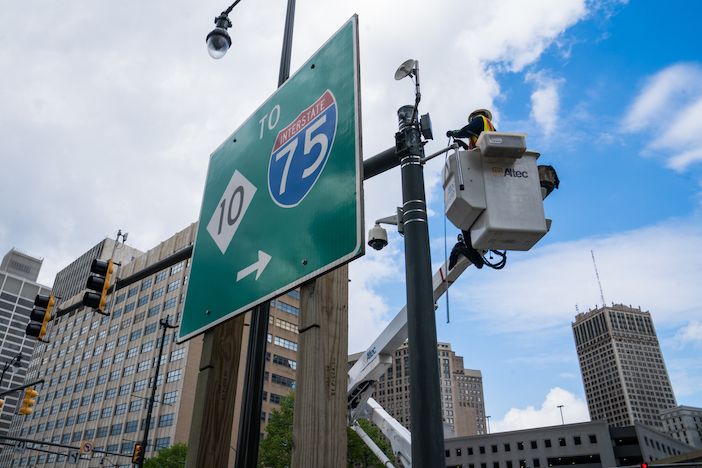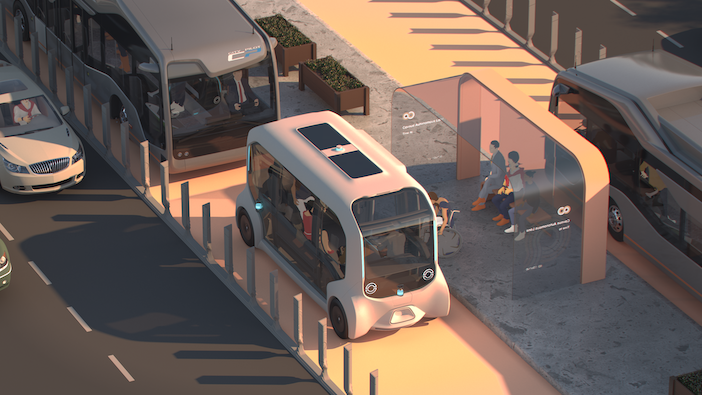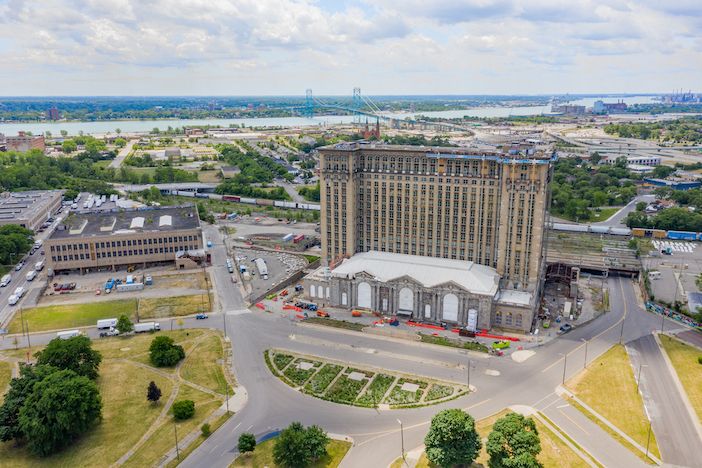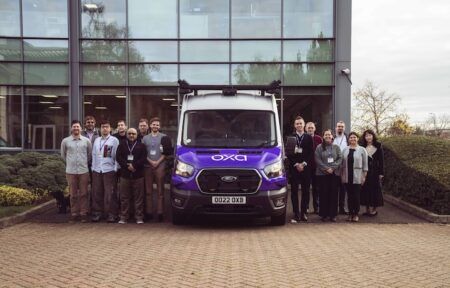A vision for a corridor with lanes that are purpose-built to accelerate and enhance the full potential of CAVs (connected and automated vehicles) has been unveiled, connecting Detroit and Ann Arbor along with key communities and destinations along Michigan Avenue and Interstate 94 in Wayne County and Washtenaw County, Michigan.
The innovative infrastructure solution will allow for a mix of connected and autonomous vehicles, traditional transit vehicles, shared mobility, and freight and personal vehicles.
This public-private partnership will see mobility innovators at Cavnue, a subsidiary of Sidewalk Infrastructure Partners (SIP), explore the opportunity and viability of this project working with state and local partners, stakeholders, and communities across the corridor from Detroit to Ann Arbor, including the Michigan Department of Transportation (MDOT).

To achieve this, Cavnue will work with regional partners to plan, design, and develop the world’s most sophisticated roadway, combining innovations in physical, digital, coordination, and operational infrastructure to help increase the safety, efficiency, resilience and operations of roadways, and improve the mobility experience for users by enabling a faster and more coordinated dedicated autonomous mobility corridor.

“The action we’re taking today is good for our families, our businesses, and our economy as a whole. Here in Michigan, the state that put the world on wheels, we are taking the initial steps to build the infrastructure to help us test and deploy the cars of the future,” said Michigan’s Governor Gretchen Whitmer, as she announced the project. “As we rebuild our roads to ensure every Michigander can drive to work and drop their kids at school safely, we will also continue working to build smart infrastructure to help prepare us for the roads of tomorrow.”
The project will advance key policy goals, including improving safety, achieving neutrality among vehicle OEMs through standards-based approaches, enhancing accessibility, affordability, and equity, and aligning with regional planning, thus encouraging innovation, R&D, economic development, open data access and shared learnings, cybersecurity, and replicability.
“As a company focused on the future of infrastructure, we are thrilled to launch Cavnue to build the future of roads, and partner with Michigan and the communities along the corridor on a first-of-its-kind CAV corridor,” said Jonathan Winer, co-founder and co-CEO of SIP.
During the feasibility analysis in Phase One, work will focus on technology testing and roadway design, and exploring different financing models with an aim toward determining project viability from both a technology and business perspective. Subsequent construction and implementation would be part of future phases of the project, to be determined following the initial 24-month period.

“The time has come to start to integrate all of the momentum happening on the vehicle technology side with an equally strong push for innovation on our road assets themselves. We believe that combining technology and physical infrastructure can help unlock the full potential of CAVs and fundamentally transform mobility to improve safety, congestion, and public transit,” says Brian Barlow, co-founder and co-CEO of SIP.
Initial project partners include Ford Motor Company, which has pioneered mobility innovation in Michigan for more than 100 years; the University of Michigan, with its CAV research centre and world-class MCity Test Facility, Transportation Research Institute (UMTRI), and facilities along the proposed corridor; and the American Center for Mobility (ACM), a leading testing facility. Ford’s chairman Bill Ford envisioned a connected corridor linking Detroit to Ann Arbor as part of the company’s Michigan Central development.

The announcement of the project took place in front of Michigan Central Station (above) which Ford purchased in 2018. The Station will be the centrepiece of the innovation district where new mobility solutions will be created and tested on smart infrastructure, including the Michigan Mobility Corridor.

“My vision for Michigan Central is to create an open mobility innovation district that solves tomorrow’s transportation challenges and improves mobility access for everyone,” said Ford. “Building out a connected corridor cements Michigan as a leader in creating a more connected, autonomous and electrified future. We thank the state for recognising the community and economic benefits and the importance of creating smart infrastructure across southeast Michigan.”
Cavnue will develop OEM-neutral standards and technology for the implementation of the corridor and permit connected and autonomous vehicles meeting specified safety and other standards to operate on the corridor regardless of the vehicle manufacturer. In developing OEM-neutral standards for the implementation of the corridor, Cavnue will draw on an advisory committee of automotive and autonomous mobility companies, including Argo AI, Arrival, BMW, Honda, Ford, GM, Toyota, TuSimple, and Waymo.
The project reflects an evolution of transportation across the United States with CAVs providing the potential to reduce thousands of traffic crashes caused by human error, cut the growing hours commuters spend stuck in traffic, and increase access to personal and shared mobility options.





